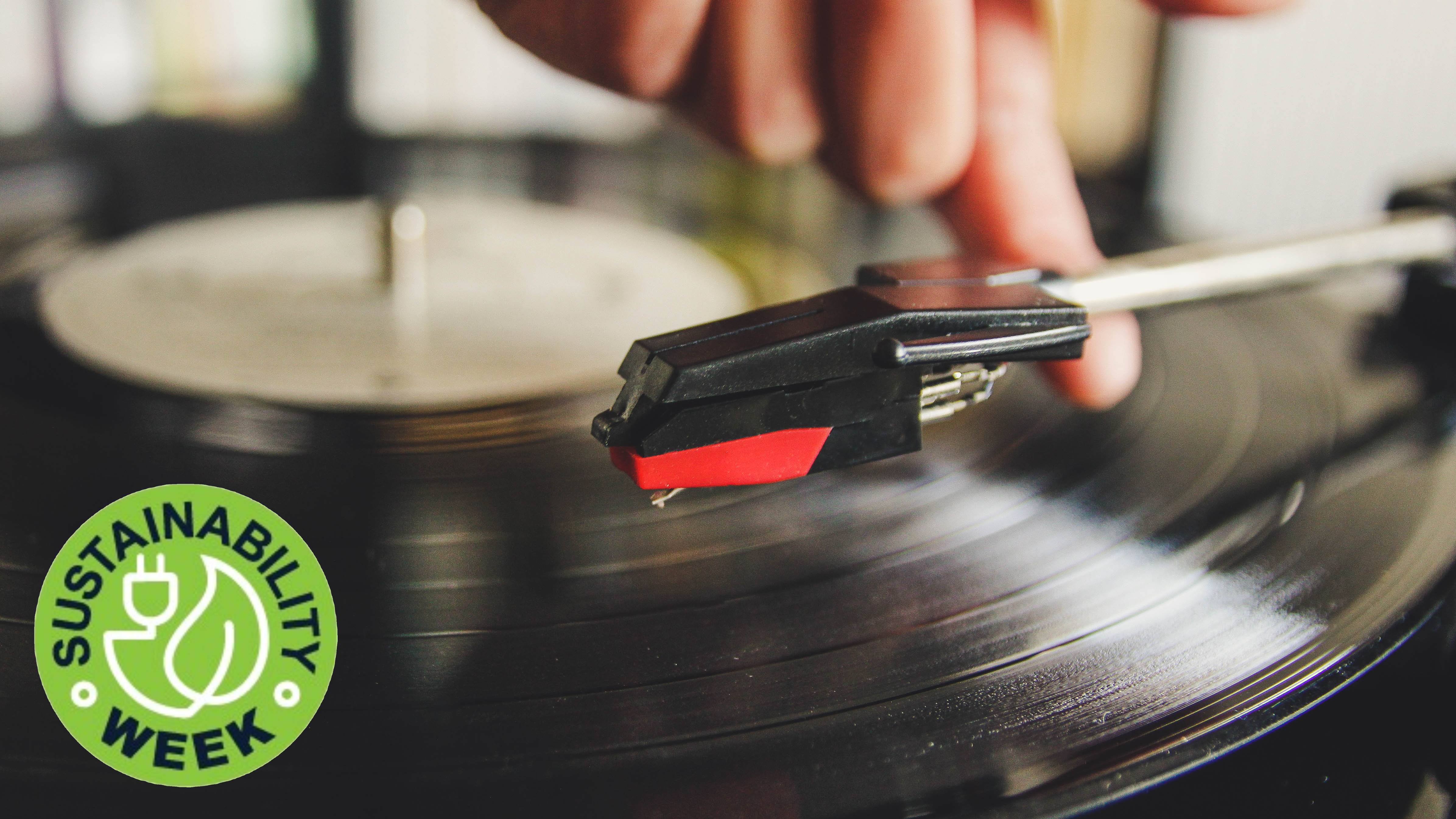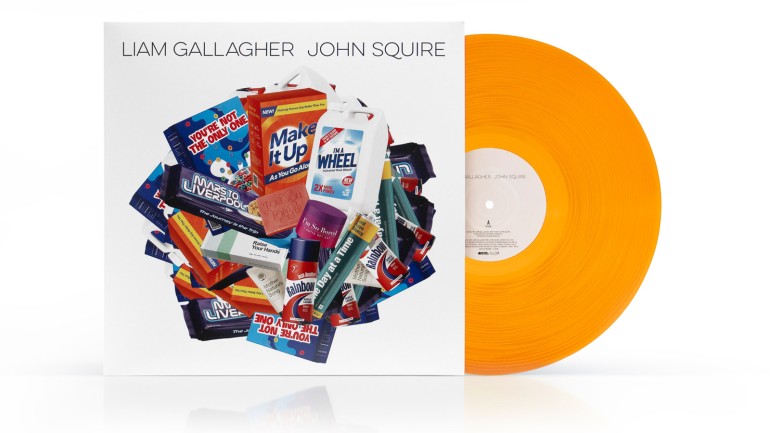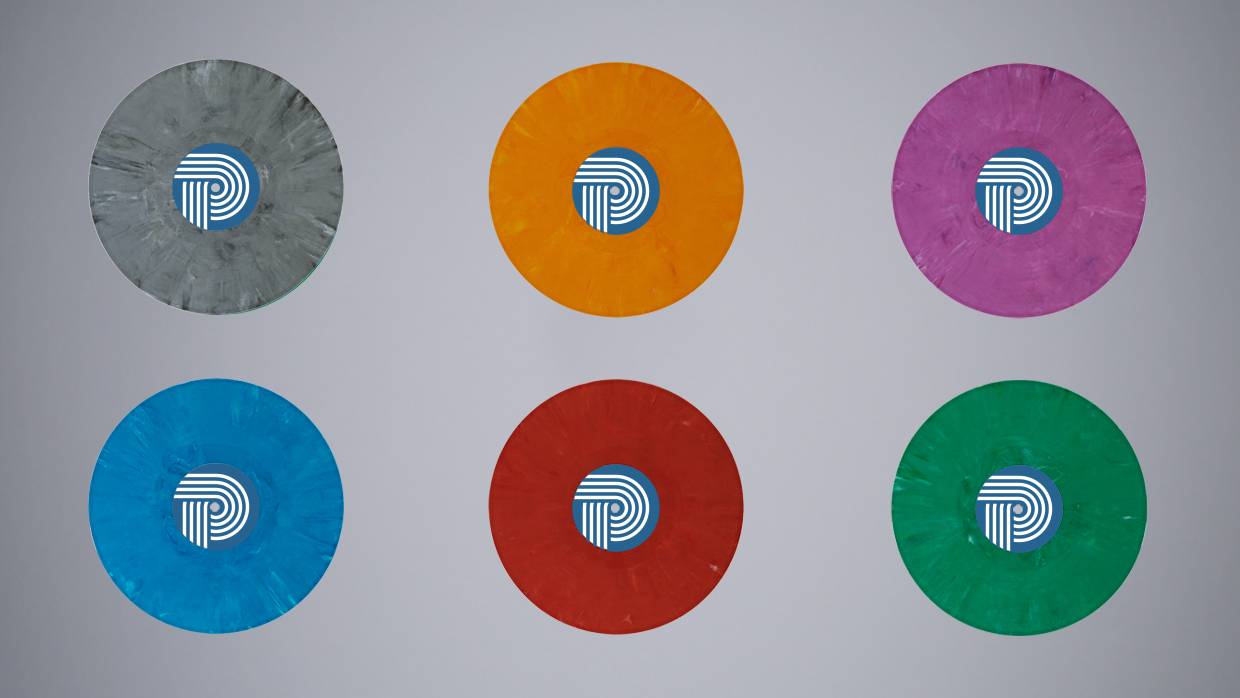Vinyl may have saved physical music but it’s harming the planet – these companies want to change that
Billie Eilish isn’t the only one making a difference

This article is part of a series of sustainability-themed articles we're running to observe Earth Day 2024 and promote more sustainable practices. Check out all of our Sustainability Week 2024 content.
There’s no denying that the humble vinyl record’s popularity has boosted physical music sales, at the same time cementing itself as one of the main ways us fans listen to our favorite artists – as well as using the best music streaming services.
So far, the 2020s has seen an unprecedented demand for music, and for that we have the pop girls to thank – with Taylor Swift soon establishing herself as the queen of churning out variant after variant of album offerings, in all different colors of pressed PVC (or polyvinyl chloride, the plastic our records are usually made from). But while it’s great that it’s sparked a renaissance in physical music consumption, the vinyl revival comes at an unfortunate cost to the planet.
In 2023, vinyl record sales saw a 11.7% growth in the UK, and increased 14% from the year before in the US. Among the 49.61 million vinyl records sold in the US (according to Forbes), Taylor Swift’s sales occupied 7% with a total of 3.484 million. Numbers like this equate to an even larger carbon footprint.
Researchers at Keele University tell us that standard vinyl records are made up of around 135g of PVC, each with a carbon footprint of 0.5kg of CO2 – and more often than not, that PVC is not recycled. Although artists such as Billie Eilish are starting to implement more eco-friendly album release plans, it won’t be enough to counteract the demand for other artists, including of course Taylor Swift, who recently released multiple variants of her latest album The Tortured Poets Department.
But artists aside, it’s vinyl production companies that are the ones actively striving for a greener future.
Enter, Sonopress and Precision Record Pressing
One of the first steps many production companies are taking is reverting to recycling PVC or using PVC-free materials in the production process. Last year, Sonopress made headlines following its announcement of EcoRecord, which was released for its client Warner Music Group in March.
“Sonopress is offering the EcoRecord, which is a new form of LP record with a drastically reduced environmental impact”, says Jörg Pollmeyer, senior vice president of sales. “From Sonopress we want to contribute with the PET-based version. PET is not only rightly rated as very good in terms of recyclability – also a 100% recycled PET base material can be used for the EcoRecord”.
Get daily insight, inspiration and deals in your inbox
Sign up for breaking news, reviews, opinion, top tech deals, and more.

Ontario-based Precision Record Pressing (PRP), is another production company pushing for PVC-free vinyl records through its new Eco Mix brand. Senior vice president of PRP, Paul Miller, says that there are three types of material that can be used to produce eco-friendly vinyl: “Recycled vinyl record PVC or PE, PVC made from bio ethylene and/or using renewable energy, and non-PVC materials such as PLA (Polylactic acid)”.
With the release of both EcoRecord and Eco Mix, it’s a promising start to the development of sustainable vinyl records. However, there’s one burning question music fans and vinyl collectors like myself want to know: are PET and recycled PVC vinyl records more expensive to manufacture? “Significant investments have been made, but the production process savings are resulting in up to 75% less CO2”, Jörg tells me confidently.
In PRP’s case, “PVC made from bio ethylene can reduce the carbon footprint of the material by up to 90%, but it can increase the cost of a pressed record by 15-20%” Paul said, adding, “while recycled PVC is less expensive, there are challenges to avoid color or paper contamination (for mixed color vinyl)”.

Must we sacrifice audio quality?
Another thing we love about vinyl is the audio aspect. There’s nothing more satisfying than the crisp sound of the needle touching the record, and it’s reassuring to know that this doesn’t have to be sacrificed for eco-friendly vinyl – depending on the materials used. Paul at PRP identifies that although the audio quality can be reduced with the PLA alternative, “virgin color PVC material has roughly equivalent surface noise to an Eco Mix record”.
For Jörg at Sonopress, audio quality was a priority from the beginning. “We set out with the ambition that the quality of the EcoRecord should match that of a conventionally produced vinyl LP in terms of sound quality”, he says.
"I can see a PVC-free future for our industry, but the road ahead seems quite long"
The end goal for companies like PRP and Sonopress is within reaching distance, however the phenomenon around sustainable vinyl records is still in its infancy and there are still obstacles to tackle.
The main challenge PRP has recognized is finding the balance between audio quality and the eco-friendly production of the record, stating that “perhaps more than any other physical music format, (vinyl) stands out in the consumer’s mind as the audiophile’s choice”. Therefore, the relationship between the process and final product is crucial to the company.
Aside from the challenges presented in the production process, both PRP and Sonopress have noticed a growing demand for eco-friendly vinyl records. “Since we started offering Eco Mix in January, we’ve booked more than 250,000 vinyl records into the program” Paul tells me, adding, “that’s from a mixture of independent and major label artists, so it shows there’s an appetite across the board.”
Sonopress has also sensed this consumer demand, taking additional corporate measures to ensure a secure future for eco-friendly vinyl production, including “entering into cooperation agreements with leading PET manufacturers worldwide”.
After all, what PRP and Sonopress are doing isn’t just about applying more sustainable approaches to vinyl record production. No, these companies are also sparking discourse around how the music industry can cut back on emissions. As more artists and record labels start to catch on to the environmental advantages of recycled and PVC-free records, a new physical music phenomenon could be on the rise.
You might also like

Rowan is an Editorial Associate and Apprentice Writer for TechRadar. A recent addition to the news team, he is involved in generating stories for topics that spread across TechRadar's categories. His interests in audio tech and knowledge in entertainment culture help bring the latest updates in tech news to our readers.